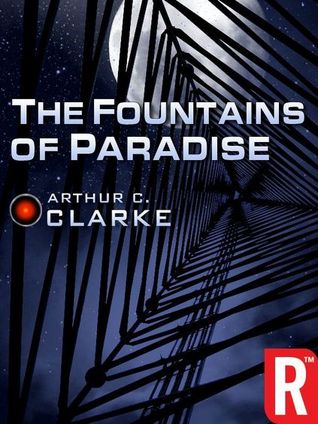Hugo Award for Best Novel (1980)
Nebula Award for Best Novel (1979)
Structural engineer Dr. Vannevar Morgan creates a new material which will make possible his ambitious dream of a Space Elevator, if only he can bring his concept to reality. Similar to a tower, the structure will link the earth with a geosynchronous satellite over a distance of 36,000 kilometers. Unfortunately, the only suitable location on earth is on the summit of a equatorial mountain in the Indian Ocean occupied by an ancient order of Buddhist monks who do not support his plan.
The Fountains of Paradise packs a surprising number of ideas into such a short novel. Clarke juxtaposes Dr. Morgan’s journey to make his space elevator possible with the life and death of the king of Sri Lanka, human colonization of Mars, and first contact of the human race with extraterrestrial intelligence. The complexity of the novel parallels the complexity of bringing a good scientific idea to fruition. Dr. Morgan overcomes obstacle after obstacle in the pursuit of the construction of his space elevator, from religious doctrine to legal battles to artificial hurricanes of sabotage to technical failures.
It is difficult to imagine how unique and ground-breaking this book was when released. The theoretical hyperfilament is the only truly captivating idea, and the actual plot and characters lack any real drama.
Recommended as an accessible classic hard scifi, but if you are new the Arthur C. Clarke, read 2001: A Space Odyssey first!
“Because politics is the science of the possible, it only appeals to second-rate minds. The first raters only interested in the impossible.”
